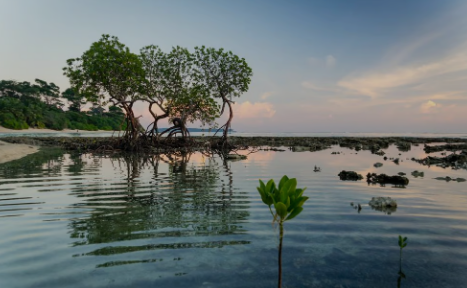The ambitious Great Nicobar Island infrastructure project, estimated at ₹72,000 crore, is encountering significant legal obstacles that could impact its progress. The project, spearheaded by the Central Government, aims to develop a township, an international container transshipment port, and an airport with both civilian and defence applications. However, it is facing stringent scrutiny from judicial and environmental bodies.
The legal challenges are primarily unfolding in the Calcutta High Court, which holds jurisdiction over the Andaman and Nicobar Islands, and the National Green Tribunal (NGT). Last year, the NGT established a High Powered Committee (HPC) to review the green clearances granted for the project. Recently, the Andaman and Nicobar Islands Integrated Development Corporation Limited (ANIDCO), the implementing agency, submitted an affidavit to the Kolkata bench of the NGT summarising the committee’s findings. The HPC’s report indicates that the proposed transshipment port does not fall within the Island Coastal Regulation Zone-IA (ICRZ-IA), where port establishments are prohibited. This finding is pivotal as it relates directly to the project’s compliance with environmental regulations.
The controversy began in 2022 when the Conservation Action Trust, a Mumbai-based non-profit, and environmental activist Ashish Kothari challenged the Coastal Regulation Zone clearances granted to the project. They argued that the project, authorised by the Ministry of Environment, Forests & Climate Change (MoEFCC), could lead to irreversible ecological damage and called for greater transparency in the clearance process. The challenge was based on concerns that the project would disrupt sensitive ecosystems, including wet evergreen forests, and impact the Nicobarese and Shompen tribal communities. The appeals raised significant issues regarding the statutory clearance process and alleged non-compliance. They also highlighted potential conflicts of interest, noting that the Secretary of Environment and Forests for the Union Territory of Andaman and Nicobar Islands also served as the Managing Director of ANIDCO.
A six-member bench of the NGT’s eastern division has since examined the case. While the bench recognised the importance of forest conservation in mitigating climate change, it also acknowledged the project’s role in national development and security. The bench concluded that there were “unanswered deficiencies” regarding coral conservation and the port’s placement within a restricted area. It noted that baseline data collection was insufficient and ordered the formation of the HPC to address these issues. The HPC, led by the Secretary of MoEFCC, has been given two months to finalise its report. Until then, the NGT has instructed that no irreversible work on the project proceed. This directive aims to ensure that any development undertaken will not compromise environmental standards or the welfare of local communities.




